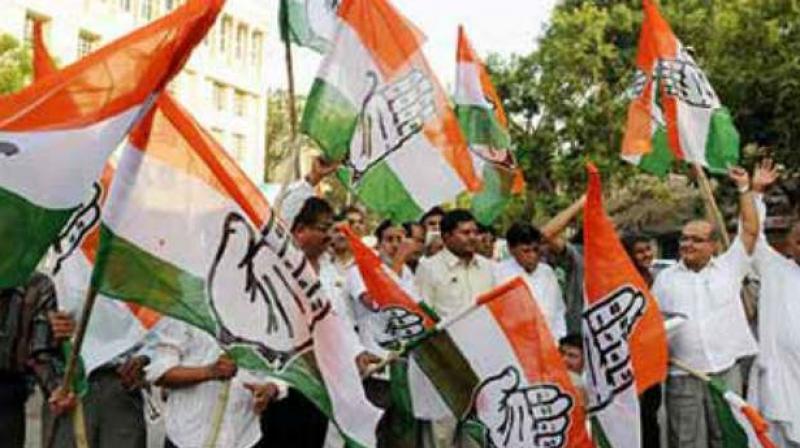Regaining the nation through nationalism
The sickening casteist polity that survived on my constituency is my nation' must end in the interest of the nation.

Bi-polar politics has been a successful system in most of the western democracies, though there has always been a greater appreciation of regional political party mechanism in a vast nation like India. Democratic pandits opine that regional parties reflect the dreams of the people and provide a multi-layered polity, but it has its drawbacks too. Regionalism began shrinking a pan-Indian image and turned democracy into an experiment India was not prepared to bear for long. In the absence of a strong theme, a nationally acceptable leadership and a powerful nationalist thread binding different provinces into a one national voice, regional parties thrived.
Division of states on linguistic factors also contributed to raising narrow vision and soon the pan-India vision was seen shrinking in the agendas of regional political leadership, who drew strength from central party commands and randomly began using its arrogant power to dictate the state units. Though we had leaders like Sidhartha Shankar Ray in Bengal and Beant Singh in Punjab, who took on valiantly against the Naxals and the Khalistanis, any such action would not have been possible under regional leaders like Mamata Banerjee or Akhilesh Yadav.
Still, regionalism was described as an expression of the legitimate aspirations of the people who found that the national parties were failing them through imposition of the party high command’s orders without taking them into confidence. The rise of OBCs and Mandal politics became the mainstay of regional parties and Indian polity stood fragmented in more parties than the states we have. It gave rise to the narrow vote banks. The narrower you were in appeals, the more were the chances to get sectional votes — their India shrunk to their vote-banks. I strongly feel we are heading towards a bi-polar polity with broad-based parties having internal democracy. The Bharatiya Janata Party (BJP) will remain a strong nationalist force with a widest national presence.
Who can form the ‘other’ pole? It could have been the Congress, rooted in the nationalism and minus the family fiefdom, but sadly it’s on a way to a methodical evaporation under a non-leader leader. Those who survive on foreign mindset and borrowed ideas are always rejected. Look at the pitiable condition of the left in Parliament. The Uttar Pradesh election is a mirror to their diminishing existence.
Without nationalism, Indian polity can neither serve the people nor protect them. Nationalism was the foundation of our freedom movement and later of free India. The Congress grew as the nationalist party and it was proud of it. Mahatma Gandhi’s Ram Rajya, Subhash Bose’s fiery patriotism, Sardar Patel, Rajendra Prasad, Purushottam Das Tandon, Sampurnanand, K.M. Munshi... there is a galaxy of such leaders. But under a self-illusory Nehruvian polity, the Congress fell victim to the Communist influence and anything that was representative of patriotism and nationalism was derided.
A party rooted in national ethos alone can form a second pole. I see a combination of ex-Congress men and leaders like Nitish taking that space. The sickening casteist polity that survived on ‘my constituency is my nation’ must end in the interest of the nation. It must be abolished as a political reform as we abolished ‘zamindaari’ in fifties under land reforms.
Tarun Vijay is BJP’s member in Rajya Sabha

